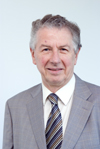Rewarding academic excellence
Lancaster University has established a new senior group of ‘distinguished professors’. This category is reserved for a limited number of star academics who are internationally recognised as world leaders in their field. Advancement is based on an individual’s profile and impact on their discipline. The following individuals are the first recipients of this award.
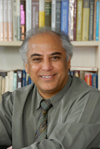 | 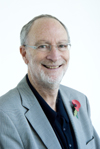 | 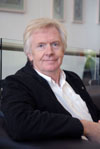 | 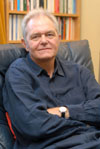 |
| Professor Swapan Chattopadhyay | Professor CaryCooper CBE | Professor Bill Davies | Professor Peter Diggle |
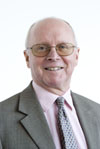 | 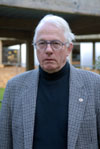 | 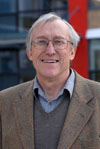 | 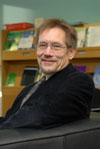 |
| Professor Robert Fildes | Professor George Pickett FRS | Professor Ken Peasnell | Professor Bob Jessop |
| | 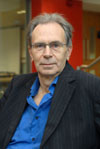 | 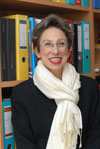 |
| Professor David Otley | Professor John Urry | Professor Ruth Wodak |
Professor Swapan Chattopadhyay holds the Sir John Cockcroft Chair of Physics at Universities of Liverpool, Manchester and Lancaster - the First Chair of accelerator physics in UK, named after the British Nobel Laureate credited with creating the field. Concurrently, he is the inaugural Director of the newly created international centre, the Cockcroft Institute of Accelerator Science and Technology at Daresbury Science and Innovation Campus. Professor Chattopadhyay is spearheading the UK initiatives in advancing accelerator-driven molecular, atomic and sub-atomic sciences. Prior to joining the faculty, Professor Chattopadhyay served as the Associate Director of the Thomas Jefferson National Accelerator Facility in the USA (2001-2007), Founder/Director of the Centre for Beam Physics at Lawrence Berkeley National Laboratory (1992-2001) and Senior Scientist at Berkeley Laboratory and Professor in the GraduateSchool at University of California at Berkeley (1984 – 2001). Born and educated in Darjeeling and Calcutta, India, he completed a PhD in Physics from Berkeley in 1982 and then spent two years at CERN in Geneva, Switzerland.
Professor Chattopadhyay is a Fellow of the American Physical Society, Fellow of the American Association for the Advancement of Science and a Fellow of the Institute of Physics (UK). He has been awarded the Berkeley Halbach Prize (1996), multiple US Department of Energy Research Awards, JAERI Distinguished Visiting Scientist of the Year award (Japan 1995-96), and Raja Ramanna Memorial Award (India, 2005). He is currently the Vice Chair of the American Physical Society’s division of physics of beams, a member of the beam dynamics panel of the International Committee for Future Accelerators and serves on numerous editorial, advisory and review committees throughout the world. Having contributed to the conception, design, construction, commissioning and operation of numerous accelerators for particle physics and synchrotron radiation sciences around the world and to significant research accomplishments in advanced accelerator and laser physics, Professor Chattopadhyay has been recognized by numerous awards and is a frequently invited speaker and advisor at professional societies and government research agencies around the world.
Professor Cary Cooper CBE, moved to Lancaster from UMIST to become pro Vice Chancellor (External Relations) in 2003. In 2001 he was awarded a CBE in the Queen’s Birthday Honours List for his work on stress and health, and in 2006 he was awarded an Honorary Fellowship of the Royal College of Physicians. He is also a Fellow of the British Psychological Society, The Royal Society of Arts and The Royal Society of Medicine among many others. He is a Founding President of the British Academy of Management and is currently President of the British Association for Counselling and Psychotherapy.
He holds honorary doctorates from several universities and in 2007 Human Resources magazine’ ranked him at number 13 in a list of the top 100 most influential HR people in the UK. He has been an advisor to two UN agencies – the World Health Organisation and the International Labour Office - and has advised the UK Government in various roles, the most recent as Chair of the high-powered management thinktank the Sunningdale Institute. He is currently Founding Editor of the Journal of Organisational Behaviour and co-editor of the medical journal Stress and Health. He is also Editor-in-Chief of Blackwell Encyclopedia of Management.
He is the author of over 100 books, has written over 400 academic papers and is a frequent contributor to TV, radio and newspapers.
Professor Bill Davies has a long-established reputation in environmental plant biology and has a particular interest in understanding and exploiting plant responses to drought. He played a leading role in the establishment and development of the Lancaster Environment Centre and with close research colleagues he has established the Waitrose Centre at Lancaster University. Here, funding by Waitrose and others allows work on food supply chain issues. Professor Davies has led several large research networks in UK and within Europe and research in the lab has led to the development of novel irrigation techniques that are now applied around the world to increase the efficiency of water use in agriculture, an important target in a changing climate where drought of increasing severity is forecast in most of the major food-producing regions. One of the early papers by the group which proposes a theory of long-distance signalling in plants and provides the basis for novel irrigation developments has been cited nearly 700 times. The group is now working in collaboration with UK farmers to introduce novel irrigation techniques into UK Horticulture.
He has edited seventeen books/collections of research monographs and written more than 200 research papers. He is an ISI highly-cited researcher in Plant and Animal Sciences with an h factor of 45. More than 40 PhD students have trained in the group. Professor Davies is a regular reviewer of grants for EU, BBSRC, NERC and Defra and referee for a wide range of international journals. He has organised several major international conferences and between 1995 and 2007 was editor in chief of the Journal of Experimental Botany. His reputation in the scientific community is further evidenced by his membership of several advisory boards and panels.
Professor Peter Diggle has an extensive record of published research which includes major contributions to spatial statistics, longitudinal data analysis, time series and Monte Carlo methods of inference. Most of his research has been motivated by applications in the environmental, biomedical and health sciences. His international reputation is reflected in his EPSRC Senior Research Fellow Appointment, his founding co-editorship of the journal Biostatistics and his Adjunct Professor Appointment to John Hopkins University. He has been a Trustee for Biometrika since 1993 and won the Royal Statistical Society Guy Medal in Silver in 1997. He is a member of the Colleges of Experts for EPSRC and for MRC, and was appointed to the MRC Public Health and Health Services Research Board in 2007.
Within the Department of Mathematics and Statistics, Professor Diggle led the statistics section between 1990 and 1998, and the medical statistics unit from its inception in 1995 until 2001. He also served as the university’s Dean for Research between 1998 and 2001. More recently, he has been heavily involved in the development of the School of Health and Medicine at Lancaster University and in raising the funding for a new research centre in Mental Health.
Professor Robert Fildes is a key founder of the research area of business and economic forecasting and is an expert in many aspects of business forecasting, both quantitative and qualitative. In Lancaster he directs the Lancaster Centre for Forecasting. Following an early text book and bibliography, he has published around 50 research papers on forecasting in top journals, mostly focusing on how methods should be evaluated. He has authored two of the most cited papers in the area and in a review of important forecasting papers, three of his papers were included in the top 30. His research now focuses on improving organisational forecasting practices, in particular the role of expert judgement, and how it influences the design of forecasting software. His work in Operations Research practice gained international recognition and continues to be a reference point in any research on understanding the changes in the OR profession.
Professor Fildes has been editor or editor-in-chief of the J. Forecasting and then of the Int. J. Forecasting and is a founding board member and ex-president of the International Institute of Forecasting. He has held a range of research council responsibilities including EPSRC college member, ESRC Post-graduate Scholarship committee, Advisor to the Association of Commonwealth Universities, and member of the High Performance Computing Strategy Committee. He is a reviewer for a number of chair appointments and promotions both in the UK and internationally, also acting as an ‘international expert’ reviewer.
Professor George Pickett FRS has made outstanding contributions to physics in his work at ultralow temperatures, developing and exploiting experimental techniques to elucidate the properties of materials at the lowest accessible temperatures. His group in the Physics Department currently works at microkelvin temperatures on superfluid Helium-3, a material which exhibits many important and fascinating quantum mechanical properties, including a number of analogies with the behaviour of the early Universe. The group holds several low-temperature records.
In 1995 Professor Pickett was awarded an EPSRC Senior Fellowship. He has served as Chairman of the Council of Scientists of INTAS, the EU Instrument for distributing EU research funding to the former Soviet Union. He represents the UK on the International Union of Pure and Applied Physics, Commission C5 for low temperature physics, and sits on the editorial board of the Journal of Low Temperature Physics. In 1997 he was elected a Fellow of the Royal Society and in the following year elected a foreign member of the Finnish Academy. In 1998 he received (jointly with Professor Guénault)the international Simon Memorial Prize given in recognition of outstanding contributions in the field of low temperature physics. He was elected a Foreign Academician of the Russian Academy of Sciences in 2006, a rare honour for a UK scientist.
Professor Ken Peasnell has an international reputation for his research on measurement, disclosure and standard-setting issues in corporate financial reporting. In particular, his pioneering work on modelling the relationship between share prices and accounting numbers has played an important role in understanding how accounting data can be used to assess business performance and in empirical research examining the relevance of such data in share valuation. He has used these methods to address a number of complex issues in accounting, including the measurement of the effects of inflation, employee stock options and asset securitisations. He was the 1995 winner of the British Accounting Association’s Distinguished Academic Award, which is made annually to the British accounting academic deemed to have made the most “outstanding and continuing contribution to the discipline of accountancy and the wider academic accounting community” and was inducted in 2004 into the BAA’s newly created Accounting Hall of Fame.
Professor Peasnell has served in advisory capacity to a number of organisations, currently including being a member of the American Accounting Association’s Research Advisory Committee and the European Accounting Association’s Financial Reporting Standards Committee and an academic adviser to the Accounting Standards Board. He was appointed Professorial Research Fellow at the Institute of Chartered Accountants of Scotland in 2001.
Professor Bob Jessop is founding Director of the Institute for Advanced Studies at Lancaster University and one of the leading political economists/sociologists across the world. His long-term intellectual project is to develop a well-grounded critical political economy approach to the form and functions of the modern state. He is the world authority on the Greek Scholar Nicos Poulantzas, a world class critic and innovative contributor to state theory, a key contributor to critical realism and the philosophy of social science. He has also been at the centre of debates on Thatcherism, the nature of the capitalist state, and the restructuring of the welfare state and the reorietation of economic and social policies. His commitment to post-disciplinary research is reflected not only in his role in establishing the Institute for Advanced Studies but also in his tenure of teaching and research positions in economics and politics (Cambridge), geography (Manchester), history (Chicago), management (Copenhagen), politics (Essex, Florence), and sociology (Lancaster, Bielefeld, Roskilde).
He is sole author of 17 books, 80 refereed journal articles, and 180 chapters and short works; his co-authored book with Ngai-Ling Sum (Politics and International Relations) received the Gunnar Myrdal prize for its key contribution to political economy in 2006; he is also editor of 25 research anthologies; and his work has been published in 15 different languages. He is widely cited in many disciplines, a frequent visitor to East Asia as well as Europe, and advises on international research programmes, graduate centres, research professorships, and research centres for international and national research bodies in North America, Europe, Asia, and Australasia. Professor Jessop has been a fellow of the Academy of Social Sciences from 2002 and has just been appointed a Visiting Professor at Copenhagen Business School for the period 2008-2012.
Professor David Otley is regarded as one of the world’s leading academics in the field of performance management and management control systems research. Professor Otley’s 1999 framework article, published in Management Accounting Research, was still its second most downloaded article in 2006, with Google Scholar recording 196 citations to date.
He currently chairs a main panel for RAE 2008, having previously chaired the Accounting & Finance panel in 2001, and acted as vice-chair of the Business & Management panel in 1996. He was appointed as a Fellow of the British Academy of Management in 1994 and gained the Distinguished Academic award of the British Accounting Association in 2001. He is an editorial board member of several leading accounting and management journals including Accounting, Organizations and Society, Accounting Auditing and Accountability Journal, Journal of Business Finance & Accounting, British Journal of Management and Management Accounting Research.
His Mastercourse for the Chartered Institute of Management Accountants attracts numerous delegates and has some of the best feedback scores in their portfolio. He has also acted as Senior Moderator for the final Advanced Stage examinations for the Institute of Chartered Accountants in England & Wales since 2001. This examination is highly regarded by the professional firms whose students take it as their final qualifying examination.
Professor John Urry is one of world’s leading sociologists having published over 35 books and special issues and more than 200 refereed articles and substantial chapters. This work has been translated into 11 languages. He is a Fellow of the Royal Society of Arts, a Founding Academician of the Academy of Social Sciences and chaired the Sociology RAE Panel in 1996 and 2001. Professor Urry set up and co-edits the journal Mobilities and is Editor of the world’s oldest sociology series, Routledge’s International Library of Sociology.
At Lancaster he is Director of the Centre for Mobilities Research (CeMoRe) and has supervised more than 25 doctoral students to completion. He is a former Head of Dept, Dean of Faculty and University Dean of Research.
His published work addresses many disciplines beyond sociology – from anthropology and architecture to tourism studies and transport research. He has been at the forefront of a number of conceptual innovations ranging from ‘realism’ and the ‘service class’ to the ‘’tourist gaze’ and the ‘new mobilities paradigm’. His latest books are Mobile Technologies of the City (2006), Mobilities, Networks, Geographies (2006), Mobilities (2007).
Professor Ruth Wodak is one of the world’s key figures in Critical Discourse Analysis (CDA) and created the Discourse-Historical Approach. In 1996 she became the first woman, and social scientist to receive the Wittgenstein Prize for world class, elite researchers. With her prize money of 1.3M Euros she created the “Discourse, Politics, Identity” Research Centre at the University of Vienna and at the Austrian Academy of Sciences.
Throughout her academic career, Professor Wodak has focussed on issues of inclusion and exclusion via discourse and communication, in political rhetoric and national and transnational organisations. Professor Wodak has co-authored over 40 books, and published 46 edited volumes, and over 300 journal papers and book chapters in German, English and French. Her work has been translated into seven languages. She is also the executive editor of the Journal of Language and Politics. She has held five visiting professorships including those at Stanford, California, Georgetown, WashingtonDC, and a Leverhulme Visiting Professorship at University of East Anglia and was recently awarded the Kerstin Hesselgren Chair of the Swedish Parliament for international elite female researchers.
She is a corresponding member of the Austrian Academy of Sciences and was a permanent fellow of the Collegium Budapest. She is chair of the Humanities and Social Sciences Panel for the EURYI Award of the ESF and sits on the board of many international funding bodies and think tanks. In her capacity as co-director of Austrian National Focal Point for the European Fundamental Human Rights Agency (FRA) Professor Wodak has been a consultant to the European Commission advising on Anti- Discrimination guidelines for media reporting. She is currently involved in two EU funded projects, one ESRC funded project, and in a research network with China funded by Leverhulme.
